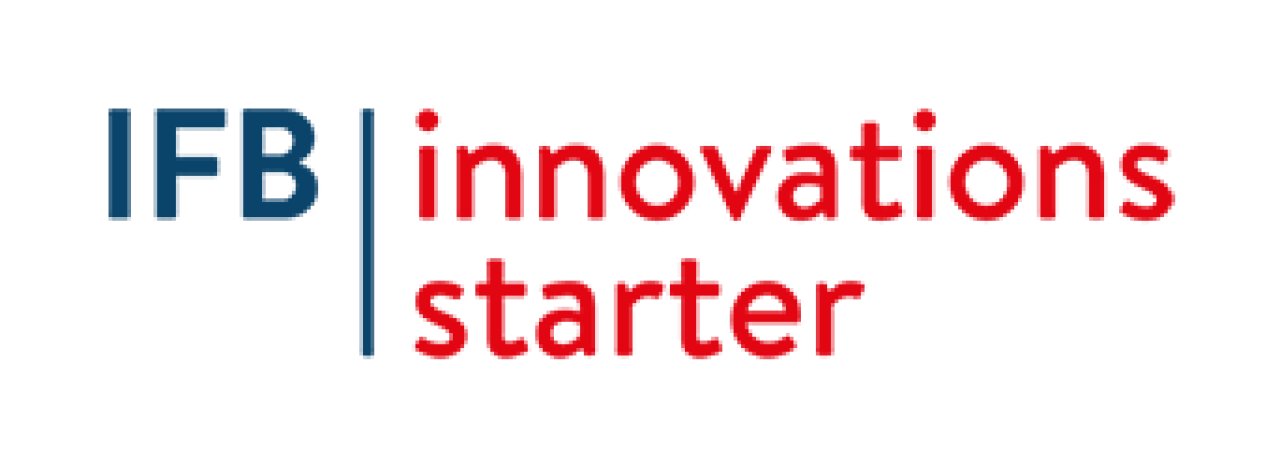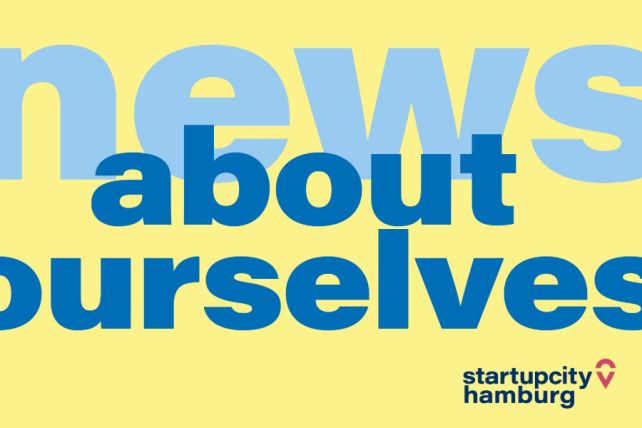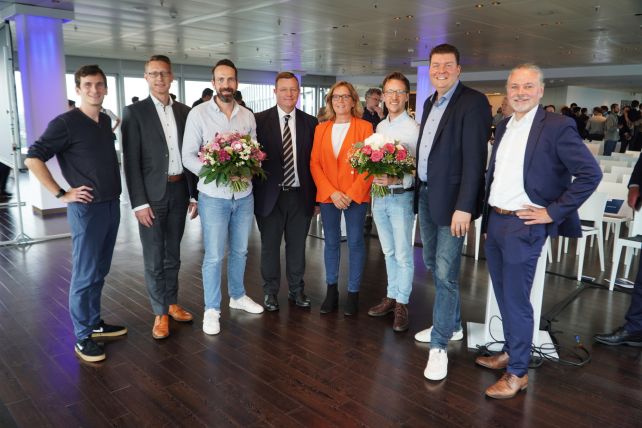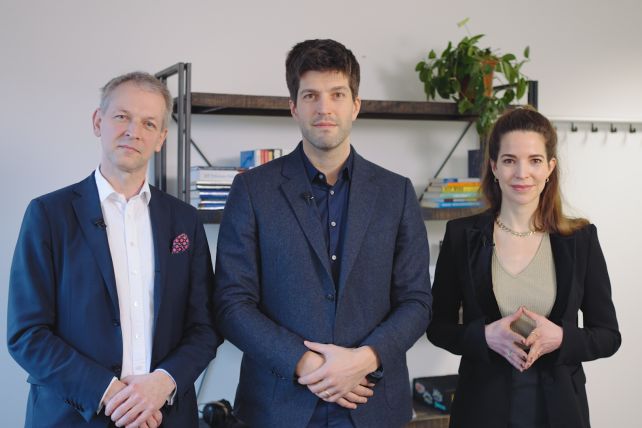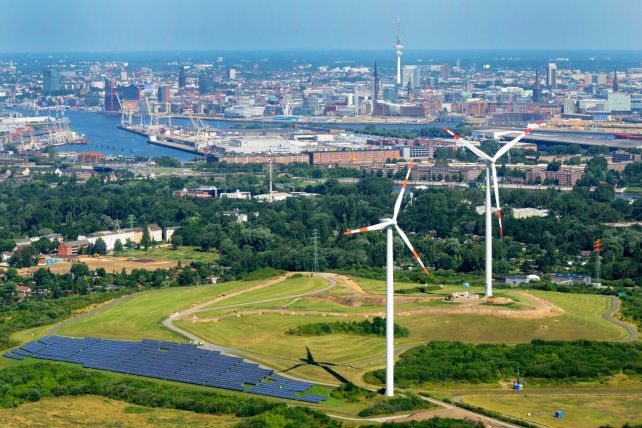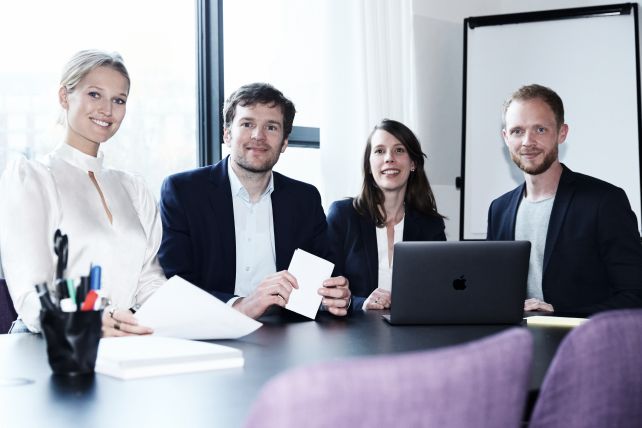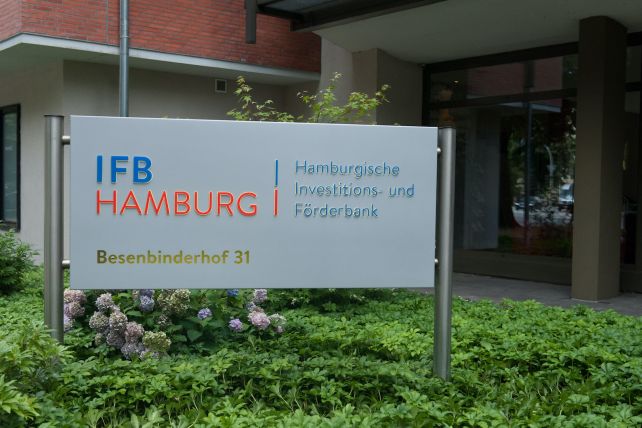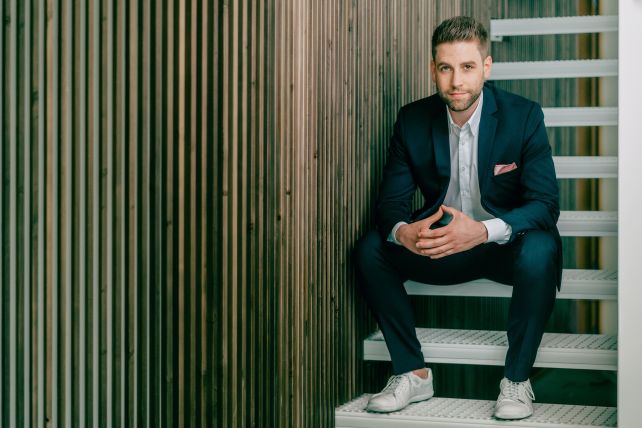
2021 was the record year for startup financing in Germany, but since then the investment volume has been declining continuously. This is also confirmed by the EY Startup-Barometer for the first half of 2023, which shows a drop of 49 percent compared to the same period last year. Nevertheless, there are still success stories like that of 1KOMMA5° from Hamburg, which was able to raise 215 million euros as recently as June. Furthermore,there are numerous opportunities for startups in the Hanseatic city to get the capital they need. This article provides an overview.
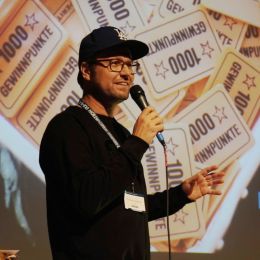
A look at the results of the EY Startup-Barometer shows: Investors have become more cautious in large financing rounds and prefer to allocate capital to rather established startups. Startups in the seed phase are more likely to go the route of public funding or conclude smaller financing rounds. Nationwide, the top source of funds last year was recourse to one's own savings. According to the figures of the German Startup Monitor 2022, around 75 percent of the founders surveyed used their own assets to start their business. State subsidies were in second place with about 47 percent. Just under a quarter tapped the reserves of family members and friends. Strategic investors and venture capital were used by around 35 percent of the startups.

Bootstrapping: It also works without outside help
In the Hanseatic City, too, financing from one's own resources is the top priority. In times of tight capital market budgets, this form of financing is increasingly appreciated. It saves a lot of working time that would be needed for courting investors. The Closest Loop tried its luck once on the startup show "Die Höhle der Löwen", but passed on a deal. It works without one. The team of two has proven that with its compostable cucumber sponges. "Our investments have always been less than 50,000 euros," says founder Niklas Heinzerling. Advances from family and friends and their own income from part-time jobs have always been sufficient. The kitchen sponges made from cucumbers are an alternative to the usual plastic sponges that end up releasing a lot of microplastic into the environment.
Heinzerling sees the clear advantage of bootstrapping as having control over his own company. One disadvantage, however, is obvious: large investments can rarely be made with this strategy. Founders who have to conduct extensive research before they can launch a product or service on the market, and startups that have to purchase expensive hardware or have high marketing requirements need external funding.

Hamburg offers extensive funding
In Hamburg, startups benefit from the extensive range of public funding offered by the city's investment and development bank (IFB). This offering is also reflected in the Startup Monitor. While only 47 per cent of startups in Germany took advantage of public funding in 2022, 52 per cent did so in Hamburg. IFB Hamburg has already supported more than 300 startups with its four funding programmes:
InnoFounder: From this promotion fund, startup teams of up to three people are subsidised with up to 75,000 euros for their innovative, especially digital, projects. The maximum funding period is 18 months.
InnoRampUp is a programme that supports technologically innovative startups from allsectors that are less than two years old. The maximum grant is 150,000 euros per company.
InnoFinTech: Startups from the financial sector that have been in existence for less than five years can be subsidised with up to 200,000 euros. Up to 90 percent of the eligible expenses are financed.
Innovationsstarter Fonds: IFB participates in young, innovative companies that are not yet five years old with up to 1.5 million euros. An exit is targeted within three to eight years.

Focus on fintech
Hamburg is placing a special focus of the funding on the fintech industry. With this, the city wants to expand its strengths as a financial centre. The startup PLAN3T also benefited from IFB's InnoFinTech programme last autumn. The three founders and their team of eight have developed an app to promote sustainable consumption. Users who shop at one of the 60 partner companies receive cashback coins that they can use to support climate protection projects.

PLAN3T has already raised 750,000 euros from investors in the pre-seed phase. In addition to venture capital, this also includes investments from business angels, a popular source of finance for startups. In Hamburg, 31 percent of them used the support of business angels last year. They offer more than just capital. As experienced business experts, they also contribute their expertise to the startup. Here you can find the membership directory of the Federal Association of Business Angels Germany (BAND). The following addresses should also be noted:
The Business Angels Netzwerk Elbe-Weser (BANEW) arranges partnerships between suitable business angels and startups.
The Hamburg Investors Network (HIN) builds bridges between capital-seeking start-ups and business angels and VC investors.
Reiner Schwenk reveals a tip for startups seeking capital:

Accelerators and family offices
Hamburg has a whole range of funding programmes and accelerators, from foodlab to the Games Lift Incubator and the AI.STARTUP.HUB. You can find the complete overview here. A particularly successful example is the Next Commerce Accelerator (NCA), which offers expert support, a six-month training programme and capital at the same time. Up to 150,000 euros per startup can be invested. One of them is the fintech Fintico, founded last year. The two founders Jan Lettow and Michael Heuer are tinkering with a digital hire purchase marketplace and were able to convince the NCA to participate in its eleventh batch. The benefits of the project are as follows: People who shop online are usually asked at the end of their order which payment method they would like to use, for example credit card or Paypal. At this point, Fintico wants to add the option "instalment purchase comparison" in the future. A window will then open in which, ideally, several credit institutions with different instalment conditions will be available for selection.
Family offices, which manage private assets, play an important role in startup financing. They often operate rather covertly, especially if they only look after a single family. But there are also multi-family offices that have several clients and are more present in the public eye. In Hamburg, these include Tonn Family Office and Lennertz & Co.
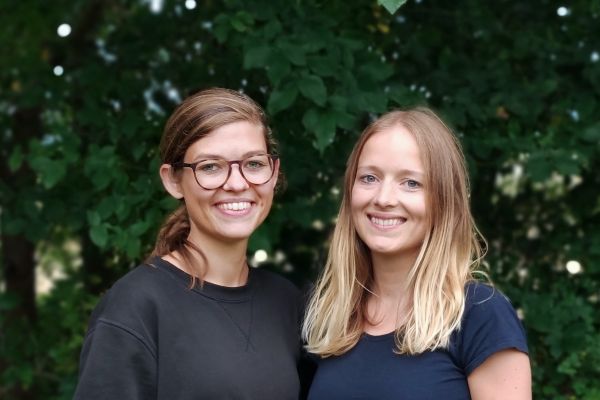
Success story traceless materials
For large investments, it can also be worthwhile knocking on the door of a venture capital company. In Hamburg there are some well-known candidates such as 20 Scoops Venture Capital, 11k Ventures or Hanse Venture. The biotech startup traceless materials already had success with Planet A in its seed investment round. Together with investments from High-Tech Gründerfonds (HTGF) and b.value AG, this resulted in seed capital of over one million euros two years ago. The two founders Anne Lamp and Johanna Baare have developed a bio-granulate from agricultural waste that can be used to replace petroleum-based plastic. At C&A in Altona, the first textile holders made of the fully compostable material are already hanging from the bars.
But more money was needed before it got this far. traceless materials even managed to raise 2.42 million euros from the EU's EIC Accelerator funding and took advantage of the IFB InnorampUp offer along the way.
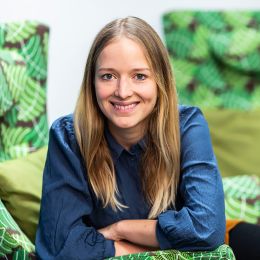
The duo has already won numerous prizes and awards, including the German Founder's Prize last year. But whether it will go public at some point is left to the imagination. In general, IPOs have largely fallen out of fashion among startups. The Hamburg-based company Scalania wants to change that soon and take promising startups public on the Swedish stock exchange. Shareholders there are more enthusiastic about new ideas than in Germany, according to the two founders Klaas Rackebrandt and Stefan Lundgren. The first IPO is expected to take place as early as this autumn. Perhaps a new way for Hamburg start-ups to get fresh capital and implement innovative concepts.
So despite the supposed slack of funding, there are plenty of opportunities for Hamburg start-ups to get professional and financial support. Finally, we have a few tips to help you find investors:
Build up a network. The best contacts often come from third parties who recommend you.
Have an elevator pitch ready. In 30 seconds you have to be able to explain what makes your startup so unique.
Present yourself as a versatile, competent and committed team. The rule of thumb is that good teams with a not-so-good idea have better chances than bad teams with a good idea. Investors rely on people first and foremost.
Make it clear that your startup is expected to make a profit. Those who invest may also want to improve the world; sustainability can be an important plus point. However, the prospect of commercial success remains the primary investment criterion.
Summarise your advantages in a clear pitch deck. Ten slides with the most important points should suffice for a first impression. You can then clarify the details in further negotiations.
Don't let rejections scare you off! Many founders have only made it after several attempts and sometimes changes to the business model. There is a good chance that persistence and belief in yourself will be rewarded.

